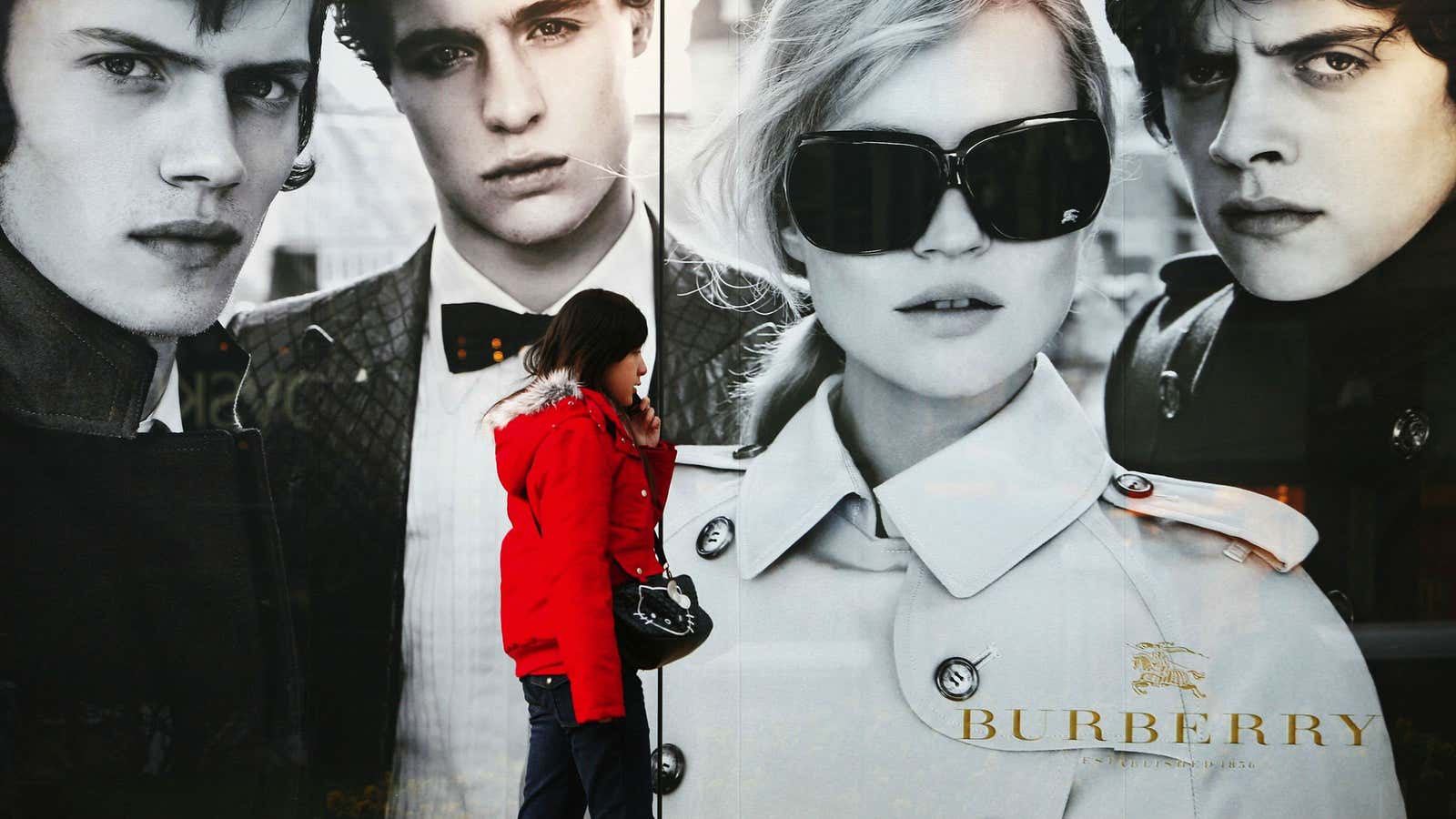A day after Louis Vuitton raised anxieties that China’s wealthy were tightening their purse strings, Burberry posted better-than-expected quarterly sales precisely because of stronger luxury demand in mainland China and Hong Kong.
The diverging fortunes of these two luxury heavyweights in the same country points not just to the continued health of luxury consumption in China that we’ve reported. It also highlights a few ways that the Chinese luxury market—now the world’s largest—is becoming more complex.
Louis Vuitton’s parent company LVMH on April 15 posted lower-than-expected earnings because of weaker sales in China for the first three months of the year. Analysts cited factors like China’s empty luxury malls, a government-led austerity campaign among elites that has hit luxury liquor and Swiss watches, and the slowing growth of the luxury market. Yet, in the same environment, Burberry’s sales in Asia rose 16%, helped by double-digit growth in China over the same period, the company said in an earnings call today.
The difference is novelty, and the fact that more Chinese big spenders want unique and extra-exclusive brands. Burberry first entered China only in 2010, but LV has been selling in the country for over 20 years. Burberry is now not as overexposed as LV, says Avery Booker, vice president of marketing at Bomoda.com, a Chinese fashion newsletter. The executives at LVMH get that. In January, the company said it would not open boutiques in second- and third-tier cities “to avoid becoming too commonplace.” It has also raised prices (paywall).
But that strategy also leaves out a possibly more important segment of Chinese luxury shoppers. In contrast to LV, Burberry plans to open 100 stores in the country over the next four years in hopes of reaching more potential shoppers. It’s these shoppers—the merely affluent earning €15,000 ($19,500 or 120,800 renminbi) to €75,000 euros a year—that are expected to drive most of the Chinese luxury market’s future growth, Exane BNP Paribas estimates.
Connecting with Chinese customers may be something else that Burberry is edging LV out on. Because many Chinese shoppers do pre-purchase luxury research online and follow recommendations from people they follow on Chinese social media like Sina Weibo and WeChat, reaching them online is critical. Burberry is on four Chinese social media sites, and has over 400,000 fans on Weibo. In a ranking this year of luxury brands in China according to their digital IQ, Burberry beat LV—which relies more on traveling exhibitions in China—for the number one spot. “Burberry has traditionally done a far better job than LV at connecting with Chinese consumers online,” Booker says.




